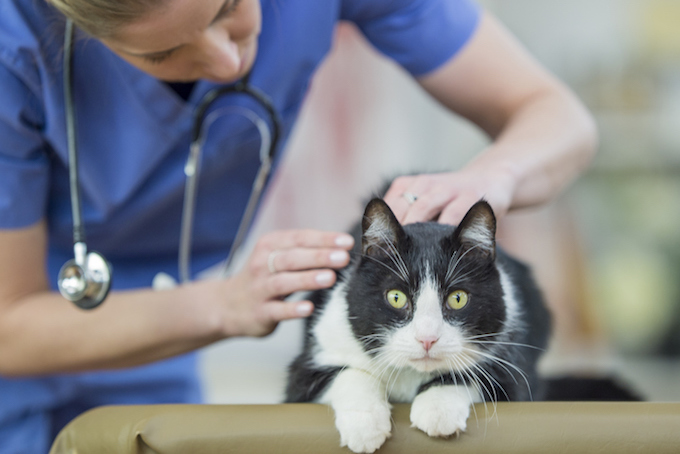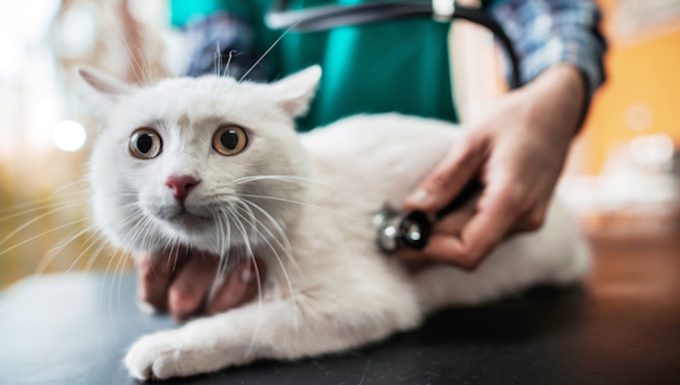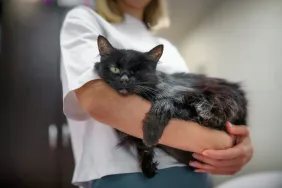Enlarged liver in cats happens when the organ becomes swollen. The condition is often caused by a different underlying condition.
Generally, the condition causes symptoms that include loss of appetite, a swollen abdomen, and lethargy. Additionally, older cats seem to develop the condition more than younger kitties.
Technically, the condition is also known as hepatomegaly in cats.
If you see the signs of the condition in your cat, then get to a veterinarian for a proper diagnosis and treatment.
Here’s what you should know about the symptoms, causes, and treatments for the condition.
Symptoms of Enlarged Liver in Cats
The condition produces a range of symptoms. For instance, some of the most common symptoms include:
- Swollen abdomen
- Loss of appetite
- Lethargy
- Drinking more water than usual
- Peeing more than usual
- Loss of weight
- Jaundice
Causes of Enlarged Liver in Cats

The cause of the condition is usually an underlying cause. For example, some of the most common underlying causes include:
- Bacterial infections
- Hepatic lipidosis
- Hepatitis
- Heartworm
- Metabolic issues
- Toxins
- Medicines
- Heart disease
Additionally, older cats seem to develop the condition more often than younger kittens.
Treatments for Enlarged Liver in Cats
Firstly, your vet will ask about your cat’s symptoms. Secondly, your vet will ask about your cat’s full medical history. This will include breed-specific problems.
Thirdly, a full physical examination will be carried out. Blood and urine tests will also be taken. The subsequent results of the tests can help to pinpoint the underlying cause of the condition.
Additionally, abdominal X-rays and ultrasounds can be used to confirm the condition.
Generally, treatment depends on the underlying cause of the condition. For example, severe cases can involve hospitalization. Generally, antibiotics can help with any infections.
As always, if your vet prescribes your cat any medicine, make sure to stick to the correct dose and frequency instructions. Also, complete the full course of medicine.
While recovering at home, your cat may need a period of cage rest. Additionally, your cat’s diet will need to be changed. A diet low in sodium and high in protein can help. Your vet will formulate a safe diet for your cat.
Have you ever cared for a cat who suffered from this condition? How did your vet help your cat recover? Let us know in the comments section below.









